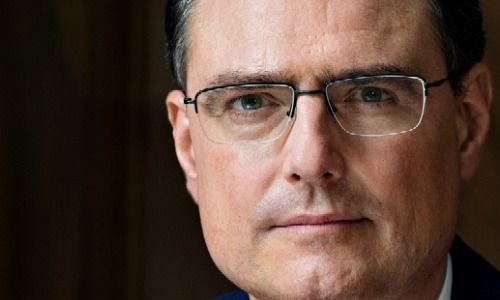The Swiss National Bank won’t give up its independence – because the clear distinction of powers has served it well. Thomas Jordan, the president of the bank, staked his claim against a groundswell of political pressures.
The current economic situation did not lend to much speculation, with the Swiss National Bank keeping its key lending rate well below zero for more than five years. All the more interesting was the bank’s reading of new proposals from politicians eager to cash in on the profits the bank is making with its reserves.
On Wednesday, the lower house of parliament had passed two motions which aimed at the use of the bank’s profits – finews.com reported earlier on Thursday.
Thomas Jordan, the president of the Swiss National Bank (SNB), left no doubt that the bank wouldn’t get involved in discussions about how the money the central government received each year from the SNB was going to be used. It remained the prerogative of parliament to decide about it.
On the Importance of Keeping a Cool Mind
On Wednesday, with a narrow majority of 95 to 91, lawmakers had passed a motion that aims to put all the money the federal government receives from the SNB be put aside to pay back debt accrued during the corona crisis. Lawmakers from centrist and right-wing groups supported the bid.
The second motion passed however wants the money the bank gets for sight deposits from commercial banks to be passed to the state pension fund. The motion was moved forward by 108 to 79 with the votes of the right-wing Swiss People’s Party and a left-wing coalition.
The proposal to earmark one source of income for a specific purpose runs counter to the central bank's mandate and is problematic for a range of legal and political reasons. «It is very important to keep a cool head and maintain things that have served us well,» said Jordan at the press conference in Bern.
Negative-Interest Regime a Complex Setting
Jordan is convinced that the government would have to initiate a constitutional amendment for such a change because the link would affect the rights of cantons too.
He in any case seems not keen on the move, which he believes does not do justice to the complexity of the negative-rate regime. While it is true that the bank is raising substantial sums by charging interest on sight deposits of commercial banks, it is equally true that it also is paying interest itself in other instances.
For a Separation of Powers
The top central banker furthermore pledged his support for keeping monetary and fiscal policy strictly separate: «It never ends well if you start printing money for fiscal purposes,» he said. Direct financing of the state by the central bank would violate an important border between the two institutions.
The directors seemed not particularly fussed about another decision-taking at the federal level. The government in May had decided to allow a report to be compiled on the potential effects of climate change on price and financial stability and the possibilities to include goals of sustainability in the investment strategy of the bank.
Freedom of Movement
Andréa Maechler, the director in charge of the policy, emphasized that the bank already took such risks into account. However, for the bank, it was important to keep the investment policy subordinate to monetary policy to maintain its freedom of movement.
It will be interesting to see how the bank will receive the promised report and whether the bank would simply accept a heavier influence of politics on how it invests the vast sums of foreign currency should parliament decide to move sustainable factors in the center of its attention.



































